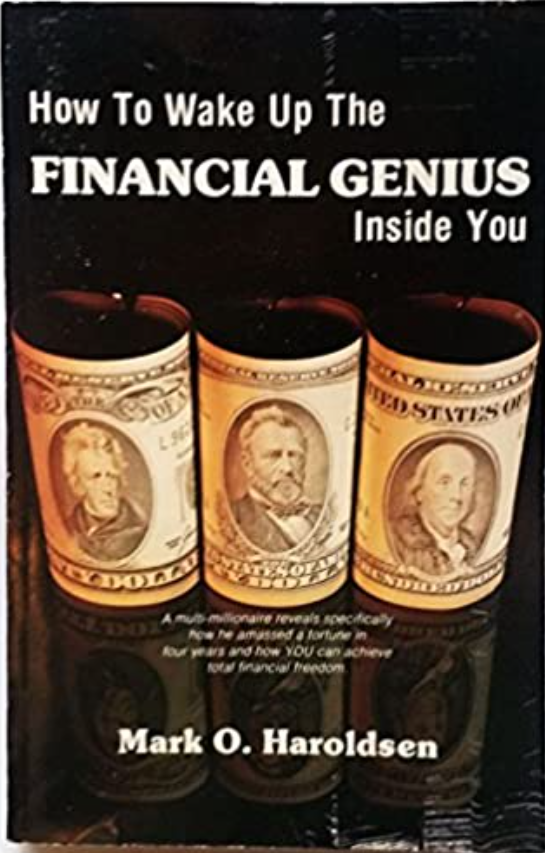
HOW TO INVEST LIKE THE 1-PERCENT
Investing Secrets That Wall Street Won’t Tell You
Have you ever felt like you are missing investment opportunities because you don’t have the money? Do you have to spend too much time working to spend time identifying and managing your best investments?
GETTING STARTED
I was still in college when I recognized that I would be working until I learned how to make my money work harder for me than I did for my money. The problem was learning how to grow my money at a rate that would eventually provide financial freedom. There were no personal finance classes in school while growing up or in college. Even MBA courses are focussed on running a business but not how to grow your own portfolio.
So I started reading. Money magazine seemed to be a good source. It had a focus on stocks, bonds and mutual funds. This was good information as I was able to start investing in a 401k.
I also started reading books from my dad like “How To Wake Up The Financial Genius Inside You” and “The Richest Man In Babylon”. The latter one gave us a good set of financial principles for investing. The first one sold me on real estate. But I didn’t have much money to invest at that time.

It was easy getting started in mutual funds. And our nest egg grew. But I later discovered that the stock market sometimes had major drops of over 30 percent. And you could not tell when it would happen.
Later I started focussing more on real estate and made a few observations.
The guys who were already out of the rat race didn’t wear fancy suits. And their returns on investment were typically higher than the average stock market returns.
WHAT ARE THE WEALTHY DOING?
One real estate speaker said “Never take advice from someone who’s not making at least three times what you want to be making.” So I spend time learning from people who are making a lot more than I am. And here are some of my observations.
1. The wealthy develop multiple streams of income. It can be diverse businesses or a portfolio of real estate properties. But they are not dependent on a paycheck from a single employer or asset.
2. The wealthy leverage other people’s money. There are many ways to do this. Getting a loan to purchase real estate is a simple and common example. After all, why pay cash when a bank will loan money at a low interest rate? And sometimes a seller will provide some of the financing.
3.. The wealthy leverage other people’s time. You may have seen this on Shark Tank. A shark will invest their money with an entrepreneur who has a passion and proven success with a new business. The shark doesn’t have to come up with the new business and spend all their time developing it. But they have the knowledge to provide guidance and money to capitalize early growth. Sometimes, as investors, we are better off investing in someone else’s deal and spending our time doing something else.
As investors we can focus on what we do best and enjoy, then seek to delegate other essential tasks. This could mean hiring or contracting out functions such as bookkeeping and property management.
4. The wealthy seek markets where they have a competitive advantage. Wall Street is based on efficient markets driving stock prices which are publicly known. When news about a company is released it becomes well known very quickly.
Real estate, however, is an inefficient market. Prices are driven by the local market, but not all properties are listed, especially in commercial real estate. The best opportunities are found through relationships, such as with a broker knows someone who needs to sell. The broker will first call his contacts who have proven their ability to perform and close the deal. Next he may go to a larger group of brokers. And posting for sale on the internet may be a third option if the first two do not provide a buyer.
5. The wealthy understand the impact of taxes and take steps to address it. There are differences between how W-2 employees and the self-employed are taxed. Although the self-employed have to pay self-employment tax, they are able to first write off expenses. They can also contribute significantly higher amounts to retirement plans.
Note also that investment income is not treated the same as earned income. Social security taxes must be paid on earned income. Investment income is generally taxed at ordinary income tax rates, unless it is from the sale of an asset intended to be held for at least 12 months. In that case it is taxed at the lower long-term capital gains rates.
But if your investment income is being withdrawn from a typical retirement account, all withdrawals are normally taxed at ordinary income tax rates unless it is a Roth account. This is a significant drawback to the traditional 401(k) and similar plans.
6. The wealthy understand that investing is a team sport. Even the large skyscrapers are not typically financed by a single individual. It is done by a group of investors. Would you rather have $1,000,000 invested in one property? Or $250,000 invested in four properties? Or $100,000 invested in each of 10 properties? It is not just spreading the financial risk and reward. They are able to leverage each other’s knowledge, skills and financial resources. By working together they are able to accomplish something none of them would have on their own and thus reap their rewards accordingly.
7. The wealthy engage in a habit of continuous learning. Warren Buffett reads newspapers and corporate reports for 5 to 6 hours a day. Bill Gates reads a book every week. Mark Cuban reads at least three hours every day. While this may seem daunting, the knowledge gained helps us identify where opportunities lie and where we may enjoy a competitive advantage described above.
PUTTING IT TOGETHER
It is interesting to note that many of these habits of the wealthy can be implemented fairly easily. Real estate syndications provide many of the benefits and are available to ordinary investors.
How are you already implementing some of these habits? We would love to hear from you.
Although I can’t read an hour a day for you we do provide a weekly blog with information on investing and how we are getting better returns with real estate. Subscribe to our WEEKLY BLOG and receive ongoing information about investing, with special attention to investing in multifamily properties. CLICK HERE TO SUBSCRIBE.
I invite you to join our Attune Club, where you can receive more information to guide your investment plans. You also get direct access to us, so we can answer your questions. Click on this link JOINTHECLUB.

Mike is a retired aerospace engineer with a passion for real estate investing and teaching financial literacy. He lives with his wife in Daytona Beach, Florida.
